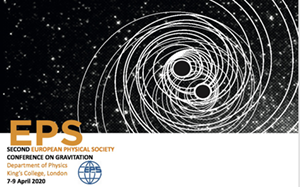Speaker
Description
The future space-based gravitational wave detector LISA will form a network of laser interferometers across a triangular constellation with 2.5 million-kilometer arms. Among other challenges, the success of the mission strongly depends on our ability to cancel laser frequency noise, whose power lies eight orders of magnitude above the gravitational signal. The standard technique to remove this noise is time-delay interferometry (TDI), a set of linear combinations of delayed phasemeter measurements tailored to cancel noise terms. Previous works have demonstrated the relationship between TDI and principal component analysis. We build on this idea to develop an alternative approach to TDI based on a model likelihood that directly depends on single-link measurements and accounts for their correlations. We obtain a comprehensive and compact framework that we call PCI for "principal component interferometry," and show that it provides a powerful description of the LISA data analysis problem.

